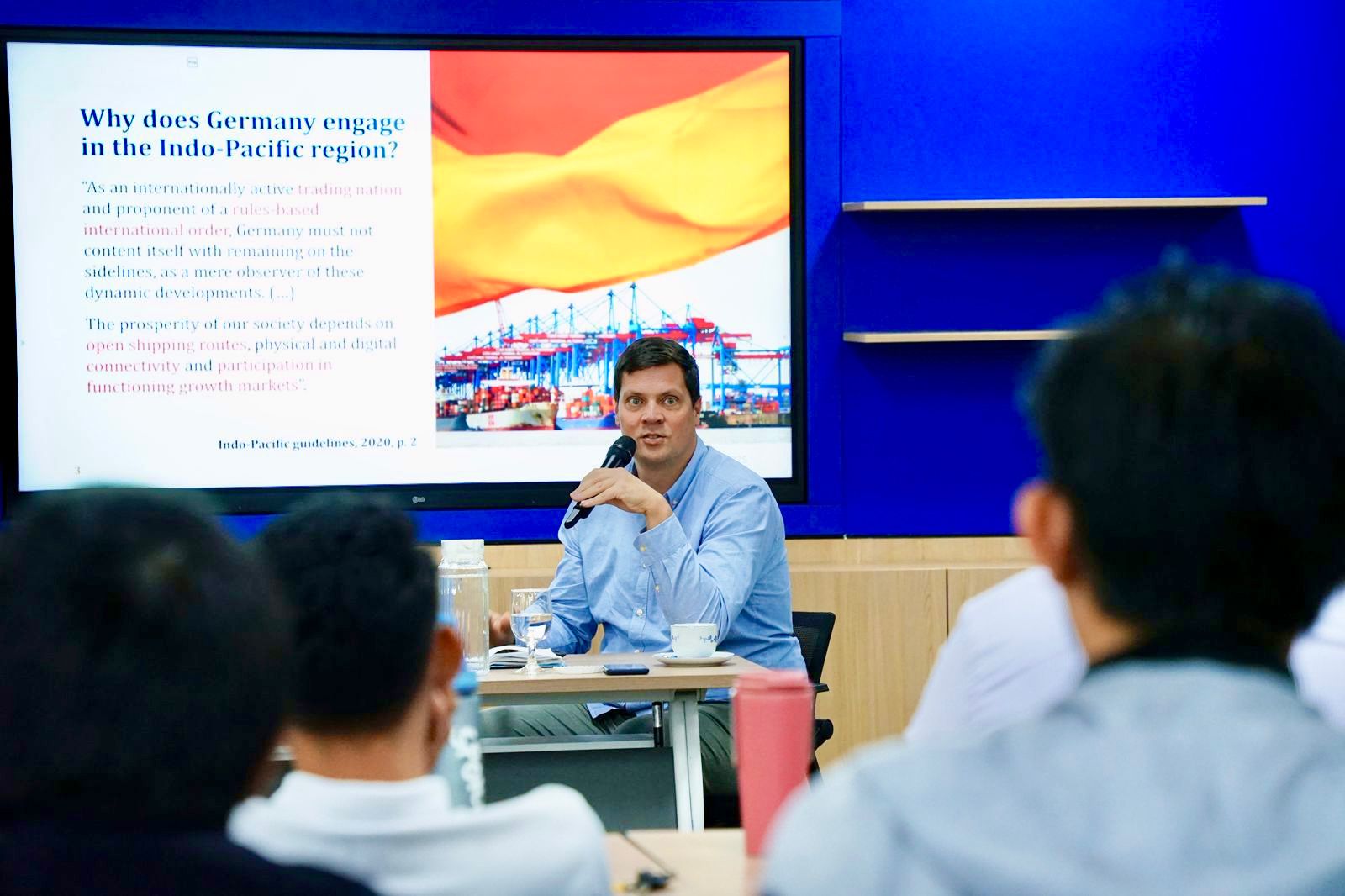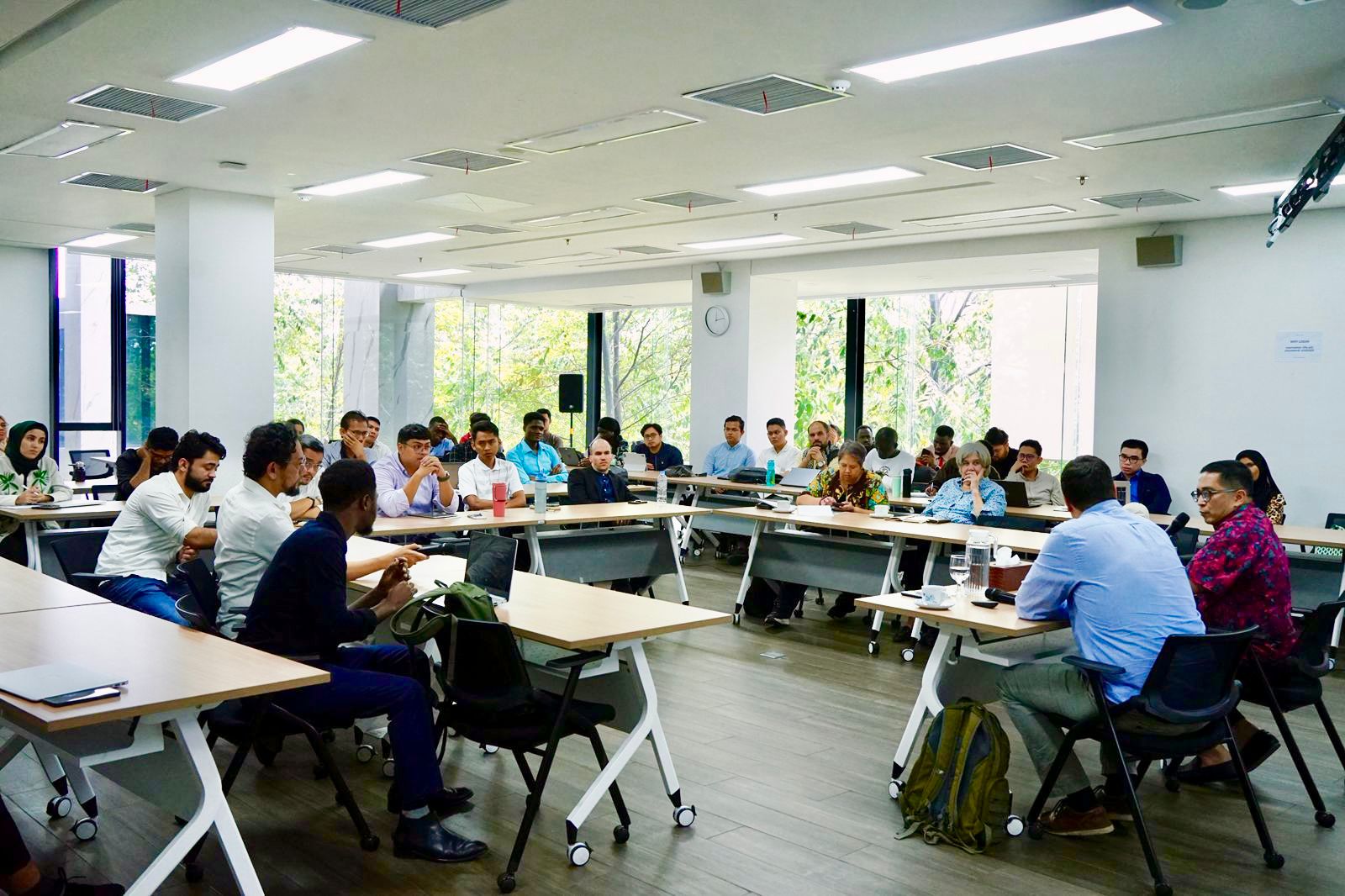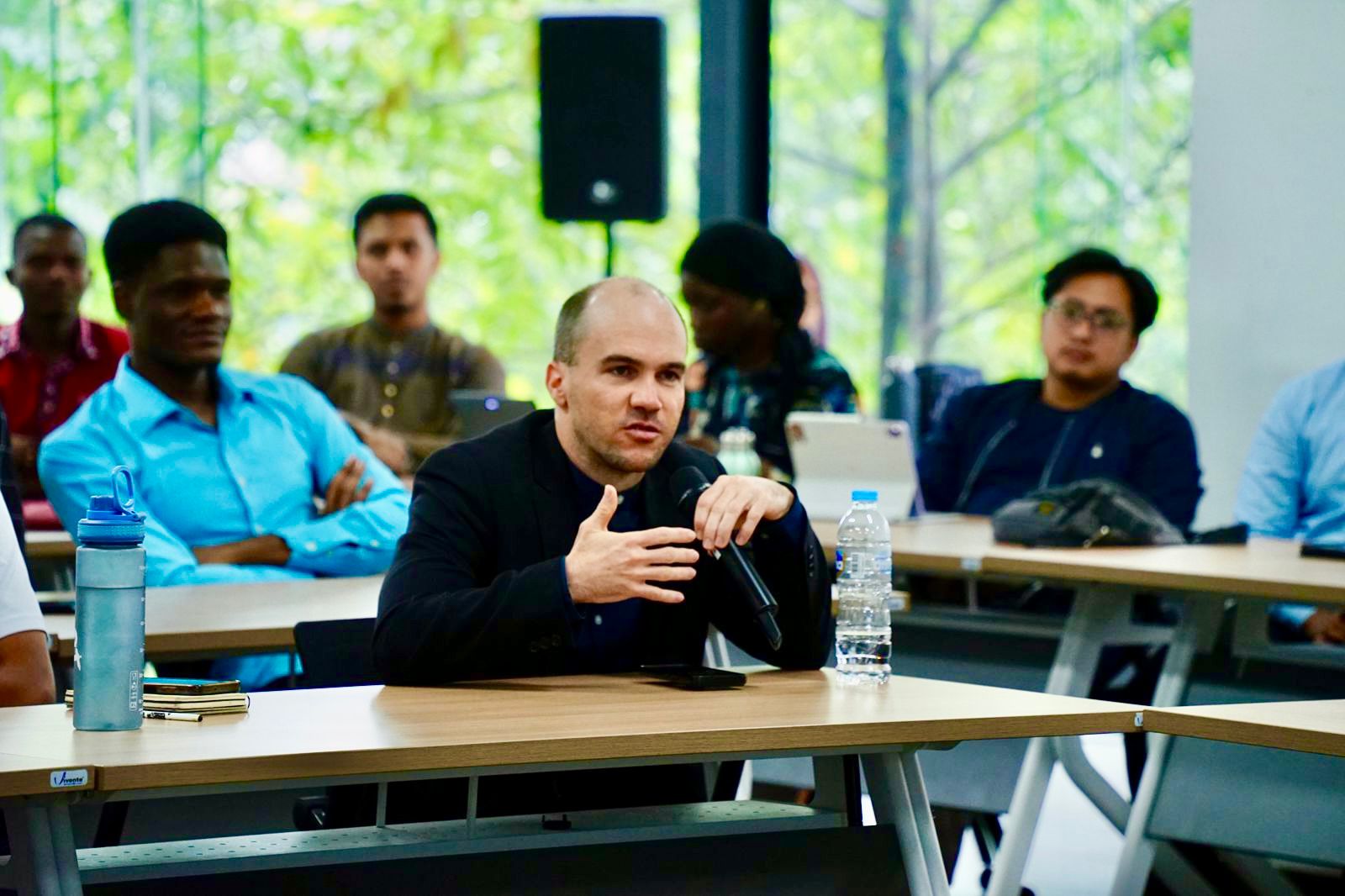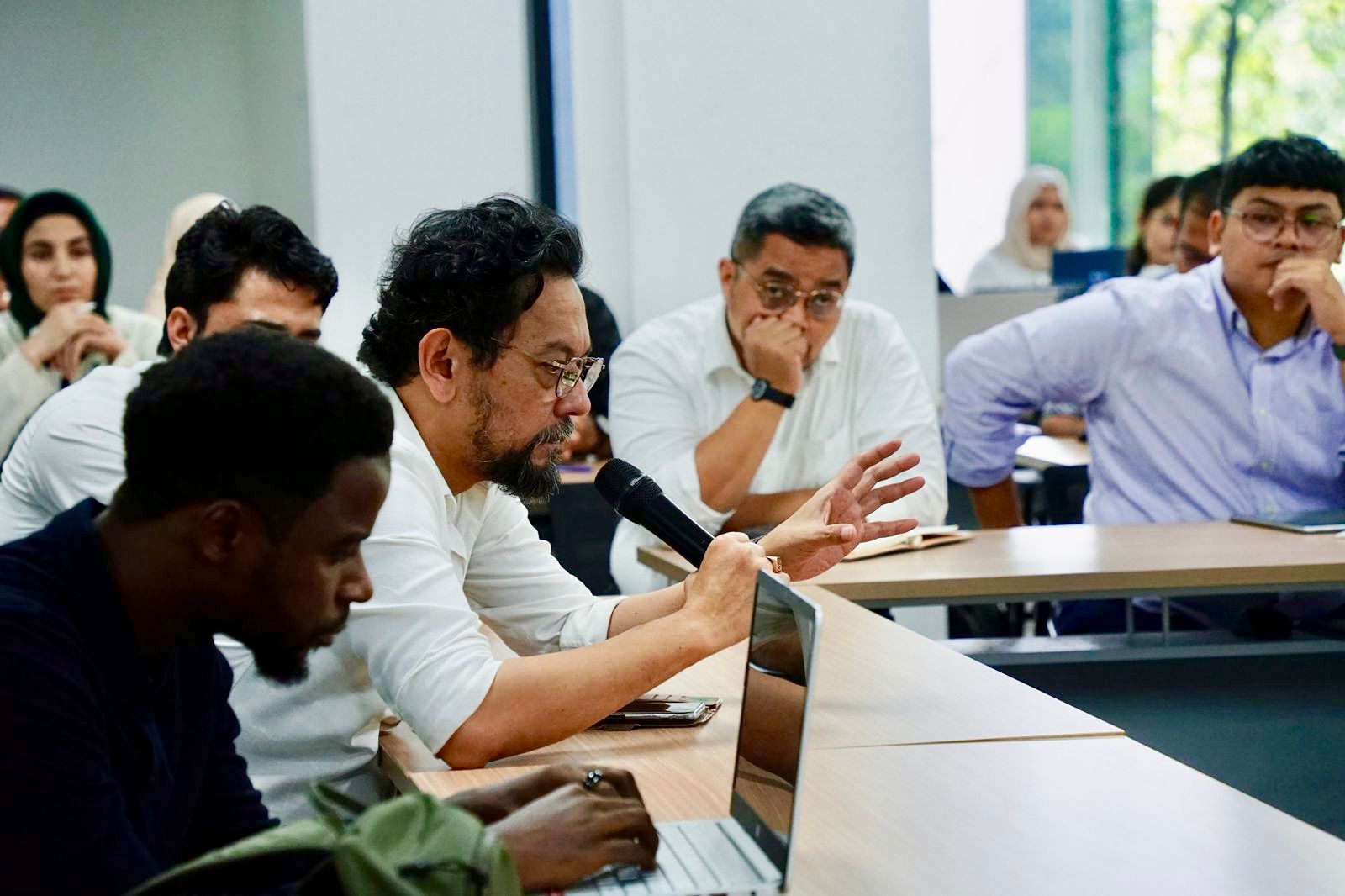October 7, 2025
Contributor: Supriyono | Photo: Andini Parahita W. & Sarah Permatasari

The UIII’s Faculty of Social Sciences (FOSS) held its 67th Brownbag Series on October 6, 2025, featuring Dr. Felix Heiduk, Head of the Asia Research Division at the Stiftung Wissenschaft und Politik (German Institute for Foreign and Security Affairs – SWP) in Berlin. His lecture, titled “German Foreign Policy and the Indo-Pacific,” explored the strategic motivations, challenges, and evolving dynamics of Germany’s engagement in the Indo-Pacific region.
Dr. Heiduk began his presentation by acknowledging the current geopolitical reality that dominates German foreign policy—the war in Ukraine—and how it shapes Berlin’s strategic priorities. “At the moment, the primary focus of German policymakers is rightly on Eastern Europe and Ukraine,” he said. “But that doesn’t mean Germany is inactive or uninterested in the Indo-Pacific.”
 According to Dr. Heiduk, Germany’s approach to the Indo-Pacific is driven less by military ambitions and more by economic and strategic considerations. As one of the world’s leading export-oriented economies, Germany relies heavily on stable trade routes and open maritime access. “Germany calls itself a trading nation, and as such, we depend on free and secure sea lanes, digital connectivity, and stable international rules,” he explained.
According to Dr. Heiduk, Germany’s approach to the Indo-Pacific is driven less by military ambitions and more by economic and strategic considerations. As one of the world’s leading export-oriented economies, Germany relies heavily on stable trade routes and open maritime access. “Germany calls itself a trading nation, and as such, we depend on free and secure sea lanes, digital connectivity, and stable international rules,” he explained.
Germany’s Indo-Pacific Guidelines, released in 2020, outline these priorities—emphasizing trade stability, supply chain resilience, and diversification beyond China. “The key question is: why should Germany care about the Indo-Pacific?” Dr. Heiduk asked rhetorically. “Because nearly 60% of global GDP is generated there. As a trading nation, Germany cannot afford instability in such a critical region.”
 Dr. Heiduk noted that Germany’s engagement remains primarily economic, with limited military involvement. “Germany’s approach is quite different from that of France, which has territories and military presence in the Pacific. For Germany, participation is largely symbolic—showing presence through naval visits, joint exercises, and partnerships,” he said.
Dr. Heiduk noted that Germany’s engagement remains primarily economic, with limited military involvement. “Germany’s approach is quite different from that of France, which has territories and military presence in the Pacific. For Germany, participation is largely symbolic—showing presence through naval visits, joint exercises, and partnerships,” he said.
He also elaborated on Germany’s “China Plus One” strategy, which aims to diversify trade and investment links beyond China. “Germany is trying to reduce dependency on China without completely disengaging from it. That’s where countries like Indonesia, Vietnam, and India come in,” he said.
 However, Germany’s engagement in the Indo-Pacific is not without challenges. Dr. Heiduk pointed out the dilemma of navigating between U.S.–China rivalry, maintaining economic independence, and upholding a multilateral order. “Germany wants to avoid a G2 world dominated by the U.S. and China, where everyone else has to choose sides,” he explained. “Our vision is for an inclusive, multilateral Indo-Pacific.”
However, Germany’s engagement in the Indo-Pacific is not without challenges. Dr. Heiduk pointed out the dilemma of navigating between U.S.–China rivalry, maintaining economic independence, and upholding a multilateral order. “Germany wants to avoid a G2 world dominated by the U.S. and China, where everyone else has to choose sides,” he explained. “Our vision is for an inclusive, multilateral Indo-Pacific.”
In closing, Dr. Heiduk emphasized the need for continued cooperation with Southeast Asian nations through ASEAN-led mechanisms. “Germany sees ASEAN as a natural partner. Its inclusivity and commitment to conflict resolution align well with our own approach,” he concluded.
The Brownbag Series once again served as a valuable platform for students and academics to engage with global experts and gain first-hand perspectives on pressing international issues. Through such dialogues, UIII continues to strengthen its role as a center for intellectual exchange and policy discourse in Indonesia, fostering greater understanding between regions such as Europe and the Indo-Pacific.

Universitas Islam Internasional Indonesia